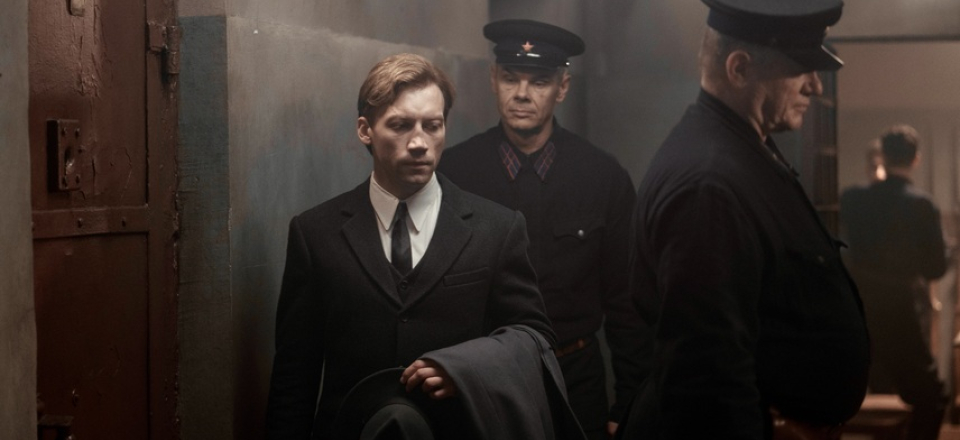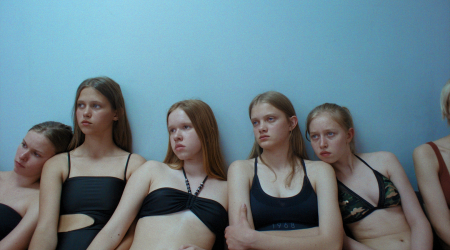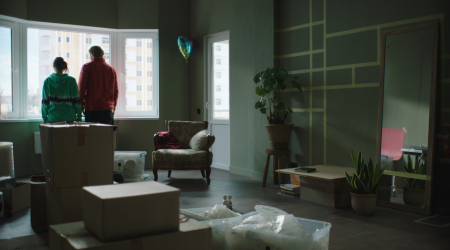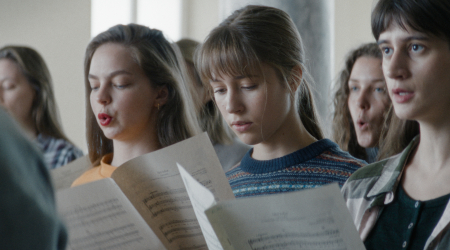Film reviews
Back to...Two Prosecutors – Loznitsa's new film places Stalinist horrors between Kafka-like irony and Greek tragedy

The start: gate opens, door opens, one enters. The end: door closes, gate closes, someone stays in. In Two Prosecutors, Ukrainian director Sergei Loznitsa intelligently captures the heaviness and absurdity of Stalinist terror. A modern tragedy.
It is a mistake. A letter arrived on Alexander Kornyev’s desk: a prisoner requests for an immediate meeting, revealing false accusations, interrogations under torture and general brutality happening in Bryansk prison. Surely, such an infringement of Soviet law is a maneuver perpetrated by counter-revolutionary thugs from the NKVD. Kornyev is convinced. He will take the case to Stalin, or, at least, the General Prosecutor.
In many respects, lawyer Kornyev is a brilliant young man: tough in negotiations, grasping threats without backing down, he manages to impose his authority and make his way into a prison cell or the prosecutor's office alike. His determination, thirst for justice and intelligence should make him a good recruit. Alas, in the USSR of 1937, these qualities only make him appear naive. To carry his new film, Sergei Loznitsa thus chooses a beginner's character, a curly head, still wet behind the ears, clashing with mostly bald hair and frowned eyebrows. Filled with Soviet ideals, Kornyev has no idea of the scale of corruption and authoritarianism - the fall is only more violently felt.
Corridors of tragedy
Two Prosecutors reserves no surprises for a 21st century spectator. Unlike our young protagonist, we are not shocked to learn that brutality and torture happened in Soviet prisons, that Stalin was not a “heart of gold”, and that the systematic elimination of old communists was no mistake, but a prepared strategy. Why bother, then, if there’s nothing to discover, if the dice are cast already?
Plot is not the point. In fact, the film is absolutely devoid of meandering plot lines or dramatic turnarounds. The script is a straight line: message, meeting, journey, meeting, journey. Instead, Sergei Loznitsa builds his film like a waiting room, giving each gesture, each movement its heaviness. Footsteps, corridors, keys, ticking sounds, creaks and squeaks. Through long, drawn-out shots of Kornyev crossing rooms, the director plays with our nerves, echoing the suffocating emptiness of the prison or the equally suffocating impersonality and overcrowding of the administrative labyrinth. We never step a foot outside, and the only window to the outdoors overlooks a prison yard. Nothing will change, Kornyev won't succeed, it's all a foregone conclusion. But still, inexplicably, we stay in line. Mesmerized.
by Pauline Ciraci
Back to...-

Tapeworm pills, illegal tongue piercings and a sketchy modeling school. Toxic portrays girlhood in an unflinching way.
-

Медовий місяць (“Honeymoon”) / “You support the human right to be alive”
-

Review of LITTLE TROUBLE GIRLS
-

Two Prosecutors – Loznitsa's new film places Stalinist horrors between Kafka-like irony and Greek tragedy











